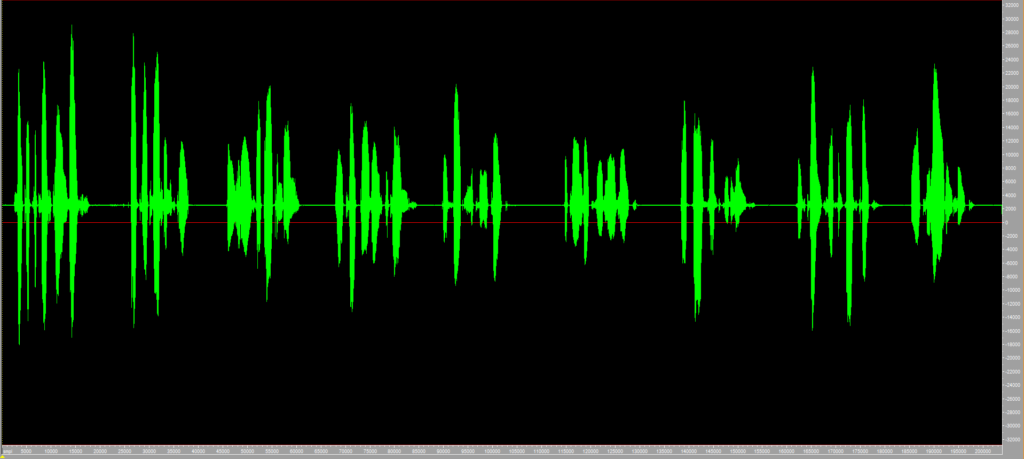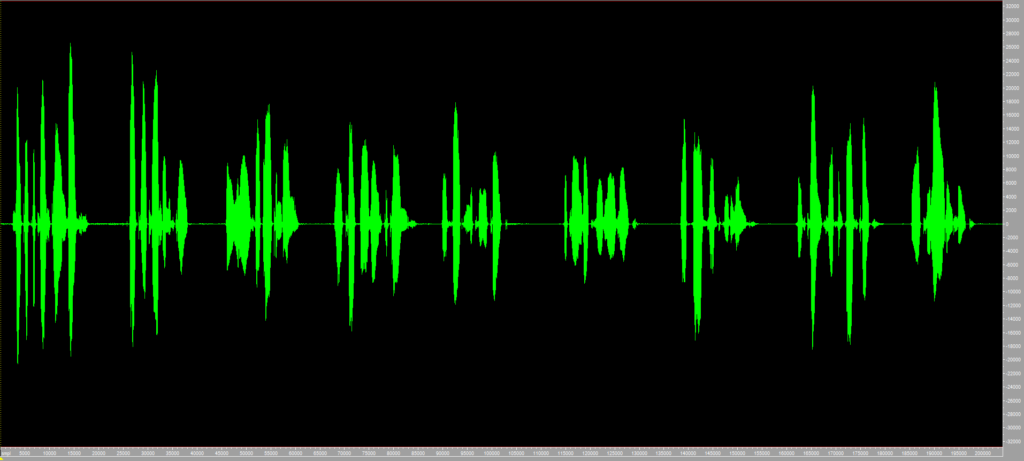High Pass Filters (HPF) are important to audio signal processing applications because audio signals are assumed to be zero mean. Applying a HPF makes a signal zero mean. A signal that is not zero mean, is considered to have a DC offset.
Figure 1. Audio Signal with a DC Offset.
Figure 2. Audio Signal without a DC Offset.
Have you ever listened to a signal with a DC offset? The most notable artifact is the pop or click at the beginning of the signal. If the offset was small relative to the signal energy, you may not have subjectively noticed. If the DC offset was very large, you might not have heard anything at all.
Sound is a fluctuation of positive and negative pressure level changes. When the audio is skewed in the positive or negative direction, the polarity switches and reproduction of the signal are altered.
High pass filters are not only important for improving the listening quality of a signal. They are important for the signal processing that occurs on that signal. For example, consider a noise reduction algorithm that needs to estimate the power of a signal. This power estimate will be incorrect due to the offset of the signal. In acoustic echo cancellation, an adaptive filter attempts to minimize the output power of the error signal. When the error signal contains a bias, the adaptive filter will not be able to fully converge. Thus, a HPF must be applied prior to performing this signal processing algorithms.

